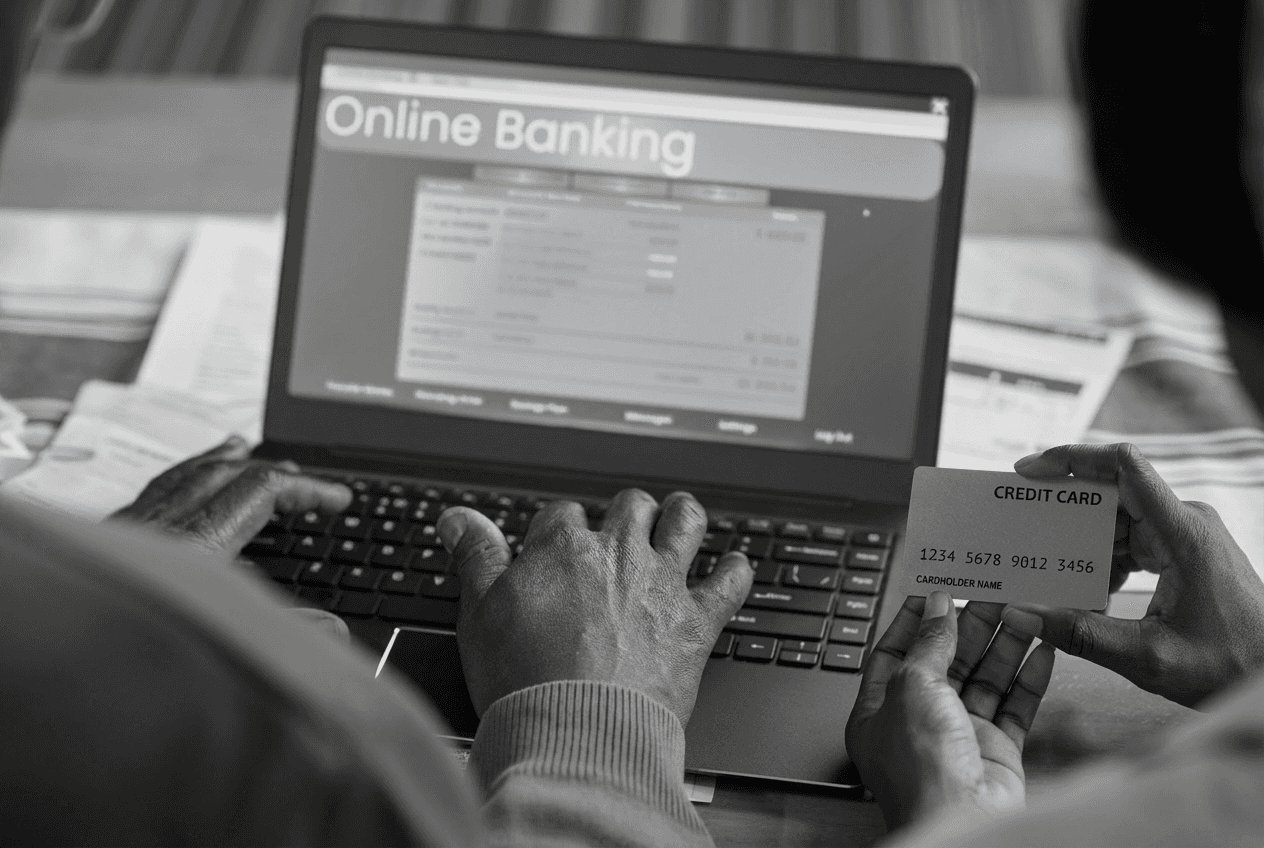July 4, 2025
July 4, 2025
July 4, 2025
How Identity Theft and SIM Swap Are Ruining Lives in Nigeria
Nigeria’s digital future is under threat from SIM swap and identity theft. Fraudsters are stealing personal data, hijacking phone lines, and draining bank accounts. Learn how these scams work, how to spot them, and what steps every Nigerian must take to stay safe.
Nigeria’s digital future is under threat from SIM swap and identity theft. Fraudsters are stealing personal data, hijacking phone lines, and draining bank accounts. Learn how these scams work, how to spot them, and what steps every Nigerian must take to stay safe.
From stolen bank accounts to fake online identities, SIM swap and identity theft have become everyday nightmares for Nigerians. Here’s how they happen, who’s behind them, and how you can protect yourself.
The Crisis You Don’t See Until It’s Too Late
You don’t need a hacker in a hoodie to lose everything.
Across Nigeria, thousands wake up to find their bank accounts emptied or their phones disconnected — all because someone stole their identity or hijacked their SIM card.
According to BusinessDay Nigeria, SIM swap fraud has quietly become “Nigeria’s silent cyber war,” draining millions of Naira from unsuspecting victims each year.
How SIM Swap Works in Nigeria
A SIM swap happens when criminals trick or bribe telecom agents to transfer your phone number to a new SIM card in their possession. Once that happens, they receive all your calls, texts, and — crucially — your one-time passwords (OTPs) used for online banking or email login.
The Nigerian Communications Commission (NCC) explains that cybercriminals often collaborate with insiders who approve fake “SIM replacement requests.” In a public advisory, the NCC’s Computer Security Incident Response Team (CSIRT) warned that “criminal actors are using SIM swap attacks to steal millions from the public, sometimes by paying off telecom staff.” Once they control your line, they can reset your bank logins, email passwords, and social media accounts — all in minutes.
Identity Theft: The Digital Impersonation Epidemic
SIM swap fraud is bad enough, but identity theft goes even further.
Through phishing links, fake banking apps, or stolen data from breaches, criminals collect your personal details — your BVN, NIN, date of birth, and email — and then impersonate you online.
A study titled “Identity Theft in the Digital Age: The Nigerian Perspective” published on SSRN found that Nigerian identity thieves increasingly rely on data from public leaks and reused information from fintech and social media profiles to commit fraud.
Even legitimate institutions sometimes make it worse. The Nation highlighted that Nigeria’s fragmented databases, poor verification systems, and weak enforcement “make impersonation almost effortless for cybercriminals.” (The Nation Online)
Real Victims, Real Losses
In August 2025, ThisDay reported that over 5,000 OPay accounts were compromised through SIM swap and phishing scams that originated from fake telecom messages. Victims lost savings and business funds overnight. (ThisDay Nigeria)
Earlier this year, the Nigeria Police Cybercrime Unit arrested a suspect in a multi-state identity theft ring responsible for cloning SIM cards and reselling digital identities to scammers on Telegram.
International analysts echo the trend: Dark Reading reported that despite arrests, cyber-fraud operations in Nigeria keep growing because the value of stolen data has never been higher.
Why Nigerians Are Easy Targets
Nigeria’s digital expansion — mobile banking, fintech apps, online ID systems — has outpaced its security controls.
Here’s why we’re so exposed:
Public data leaks: Many Nigerian platforms lack strong encryption, making private data easy to harvest.
Weak inter-agency security: Systems like NIN, BVN, and bank APIs aren’t fully synchronized, leaving loopholes.
Low public awareness: Most users don’t realize that losing control of their SIM card is equal to losing their bank account.
Economic pressure on telecom staff: Fraudsters bribe insiders to help bypass security protocols.
The result? A perfect storm of convenience and vulnerability.
The Human Cost of Identity Theft
When your identity is stolen, the damage goes far beyond money:
Financial devastation: Funds vanish, credit lines open in your name.
Loss of reputation: Scammers use your profile for illegal activities.
Emotional trauma: Victims experience anxiety, sleeplessness, and distrust in digital systems.
Social impact: Victims often lose access to business tools, emails, or phone numbers essential for their livelihoods.
How to Protect Yourself from SIM Swap and Identity Theft
1. Secure Your SIM Card
Visit your telecom provider and enable a SIM lock PIN.
Never share your IMSI or SIM serial number (printed on the card).
Immediately report any “No Service” signal that lasts more than 10 minutes.
2. Strengthen Digital Hygiene
Use unique, complex passwords for each platform.
Enable Two-Factor Authentication (2FA) using an authenticator app (not SMS).
Avoid logging in through links sent via SMS, WhatsApp, or email.
3. Limit Exposure
Don’t post personal identifiers (date of birth, ID numbers) publicly.
Only submit your NIN/BVN on verified platforms — use digital verification portals like ProfiledNG to confirm legitimacy.
4. React Quickly After a Breach
Contact your bank to freeze accounts and block transfers.
Call your telecom provider to deactivate unauthorized SIMs.
Report the incident to the Nigeria Police Cybercrime Unit (NCCC) or the EFCC.
Change all passwords and security questions immediately.
Government and Telecom Response
The NCC and NITDA have begun tightening SIM registration procedures. The NCC now mandates biometric verification and digital signatures for SIM swaps to reduce insider fraud. (NCC Official Advisory)
Meanwhile, the Nigeria Data Protection Commission (NDPC) is drafting a new Digital Identity Protection Framework to help citizens claim compensation when their data is misused. (NDPC News Update)
Still, enforcement remains slow, and most victims never recover their losses.
The Bottom Line
Digital progress is good — but unprotected progress is dangerous.
As Nigerians, we can’t avoid digital life, but we can navigate it wisely.
Lock your SIM, protect your identity, and stay skeptical of anything that sounds urgent or official online.
Cybercriminals don’t need to break in — most times, we open the door for them.
References (embedded above)
BusinessDay – Why SIM Swap Scams Are Nigeria’s Silent Cyber War
NCC CSIRT Advisory – Cybercriminals Using SIM Swapping Attack
SSRN – Identity Theft in the Digital Age: The Nigerian Perspective
Dark Reading – Nigeria Touts Cyber Success, but African Cybercrime Rises
From stolen bank accounts to fake online identities, SIM swap and identity theft have become everyday nightmares for Nigerians. Here’s how they happen, who’s behind them, and how you can protect yourself.
The Crisis You Don’t See Until It’s Too Late
You don’t need a hacker in a hoodie to lose everything.
Across Nigeria, thousands wake up to find their bank accounts emptied or their phones disconnected — all because someone stole their identity or hijacked their SIM card.
According to BusinessDay Nigeria, SIM swap fraud has quietly become “Nigeria’s silent cyber war,” draining millions of Naira from unsuspecting victims each year.
How SIM Swap Works in Nigeria
A SIM swap happens when criminals trick or bribe telecom agents to transfer your phone number to a new SIM card in their possession. Once that happens, they receive all your calls, texts, and — crucially — your one-time passwords (OTPs) used for online banking or email login.
The Nigerian Communications Commission (NCC) explains that cybercriminals often collaborate with insiders who approve fake “SIM replacement requests.” In a public advisory, the NCC’s Computer Security Incident Response Team (CSIRT) warned that “criminal actors are using SIM swap attacks to steal millions from the public, sometimes by paying off telecom staff.” Once they control your line, they can reset your bank logins, email passwords, and social media accounts — all in minutes.
Identity Theft: The Digital Impersonation Epidemic
SIM swap fraud is bad enough, but identity theft goes even further.
Through phishing links, fake banking apps, or stolen data from breaches, criminals collect your personal details — your BVN, NIN, date of birth, and email — and then impersonate you online.
A study titled “Identity Theft in the Digital Age: The Nigerian Perspective” published on SSRN found that Nigerian identity thieves increasingly rely on data from public leaks and reused information from fintech and social media profiles to commit fraud.
Even legitimate institutions sometimes make it worse. The Nation highlighted that Nigeria’s fragmented databases, poor verification systems, and weak enforcement “make impersonation almost effortless for cybercriminals.” (The Nation Online)
Real Victims, Real Losses
In August 2025, ThisDay reported that over 5,000 OPay accounts were compromised through SIM swap and phishing scams that originated from fake telecom messages. Victims lost savings and business funds overnight. (ThisDay Nigeria)
Earlier this year, the Nigeria Police Cybercrime Unit arrested a suspect in a multi-state identity theft ring responsible for cloning SIM cards and reselling digital identities to scammers on Telegram.
International analysts echo the trend: Dark Reading reported that despite arrests, cyber-fraud operations in Nigeria keep growing because the value of stolen data has never been higher.
Why Nigerians Are Easy Targets
Nigeria’s digital expansion — mobile banking, fintech apps, online ID systems — has outpaced its security controls.
Here’s why we’re so exposed:
Public data leaks: Many Nigerian platforms lack strong encryption, making private data easy to harvest.
Weak inter-agency security: Systems like NIN, BVN, and bank APIs aren’t fully synchronized, leaving loopholes.
Low public awareness: Most users don’t realize that losing control of their SIM card is equal to losing their bank account.
Economic pressure on telecom staff: Fraudsters bribe insiders to help bypass security protocols.
The result? A perfect storm of convenience and vulnerability.
The Human Cost of Identity Theft
When your identity is stolen, the damage goes far beyond money:
Financial devastation: Funds vanish, credit lines open in your name.
Loss of reputation: Scammers use your profile for illegal activities.
Emotional trauma: Victims experience anxiety, sleeplessness, and distrust in digital systems.
Social impact: Victims often lose access to business tools, emails, or phone numbers essential for their livelihoods.
How to Protect Yourself from SIM Swap and Identity Theft
1. Secure Your SIM Card
Visit your telecom provider and enable a SIM lock PIN.
Never share your IMSI or SIM serial number (printed on the card).
Immediately report any “No Service” signal that lasts more than 10 minutes.
2. Strengthen Digital Hygiene
Use unique, complex passwords for each platform.
Enable Two-Factor Authentication (2FA) using an authenticator app (not SMS).
Avoid logging in through links sent via SMS, WhatsApp, or email.
3. Limit Exposure
Don’t post personal identifiers (date of birth, ID numbers) publicly.
Only submit your NIN/BVN on verified platforms — use digital verification portals like ProfiledNG to confirm legitimacy.
4. React Quickly After a Breach
Contact your bank to freeze accounts and block transfers.
Call your telecom provider to deactivate unauthorized SIMs.
Report the incident to the Nigeria Police Cybercrime Unit (NCCC) or the EFCC.
Change all passwords and security questions immediately.
Government and Telecom Response
The NCC and NITDA have begun tightening SIM registration procedures. The NCC now mandates biometric verification and digital signatures for SIM swaps to reduce insider fraud. (NCC Official Advisory)
Meanwhile, the Nigeria Data Protection Commission (NDPC) is drafting a new Digital Identity Protection Framework to help citizens claim compensation when their data is misused. (NDPC News Update)
Still, enforcement remains slow, and most victims never recover their losses.
The Bottom Line
Digital progress is good — but unprotected progress is dangerous.
As Nigerians, we can’t avoid digital life, but we can navigate it wisely.
Lock your SIM, protect your identity, and stay skeptical of anything that sounds urgent or official online.
Cybercriminals don’t need to break in — most times, we open the door for them.
References (embedded above)
BusinessDay – Why SIM Swap Scams Are Nigeria’s Silent Cyber War
NCC CSIRT Advisory – Cybercriminals Using SIM Swapping Attack
SSRN – Identity Theft in the Digital Age: The Nigerian Perspective
Dark Reading – Nigeria Touts Cyber Success, but African Cybercrime Rises










